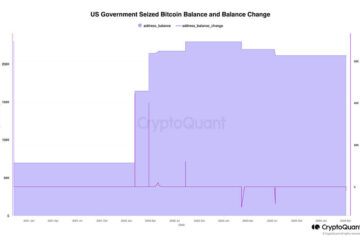

The hacker responsible for stealing $230 million from WazirX in July has nearly finished laundering the funds, with just $6 million worth of Ethereum (ETH) left, based on Arkham Intelligence on-chain data.
Most of the stolen assets were moved through Tornado Cash, a service known for obscuring digital transactions.
Funds laundered
The breach, which compromised over 45% of the Indian exchange’s reserves, involved a range of assets, including over $100 million in Shiba Inu (SHIB) and $52 million in Ethereum taken from a compromised wallet.
Arkham data shows the hacker has transferred over $50 million through Tornado Cash since August, intensifying activity in recent weeks. A recent transfer involved 3,792 ETH, approximately $10 million.
Tornado Cash, a tool that helps mask wallet addresses, has become a common means for criminals to launder crypto. While the service itself is not illegal, its misuse in criminal schemes has drawn significant attention.
Earlier this year, Tornado Cash developer Alexey Pertsev was convicted of money laundering in the Netherlands and sentenced to over five years in prison.
Restructuring
Following the hack, WazirX entered a restructuring process in Singapore to manage its liabilities. Despite efforts to recover the stolen assets, the exchange has faced criticism for its crisis response and lack of transparency with users.
Adding to the controversy, Binance, a former business partner of WazirX, clarified that it was not involved in the hack and does not control or manage WazirX operations.
The statement contradicted claims made by WazirX co-founder Nischal Shetty in August, further complicating the exchange’s public relations challenges.
With the majority of the stolen funds now laundered, WazirX continues to face hurdles in its recovery efforts, raising questions about the exchange’s future and broader security concerns within the industry.
 Bitcoin
Bitcoin  Ethereum
Ethereum  Tether
Tether  XRP
XRP  USDC
USDC  TRON
TRON  Lido Staked Ether
Lido Staked Ether  Dogecoin
Dogecoin  Figure Heloc
Figure Heloc  Cardano
Cardano  Bitcoin Cash
Bitcoin Cash  Wrapped stETH
Wrapped stETH  WhiteBIT Coin
WhiteBIT Coin  Wrapped Bitcoin
Wrapped Bitcoin  Wrapped eETH
Wrapped eETH  USDS
USDS  Chainlink
Chainlink  Binance Bridged USDT (BNB Smart Chain)
Binance Bridged USDT (BNB Smart Chain)  Monero
Monero  LEO Token
LEO Token  WETH
WETH  Stellar
Stellar  Coinbase Wrapped BTC
Coinbase Wrapped BTC  Sui
Sui  Ethena USDe
Ethena USDe  Litecoin
Litecoin  Zcash
Zcash  Avalanche
Avalanche  Hyperliquid
Hyperliquid  Shiba Inu
Shiba Inu  Hedera
Hedera  Canton
Canton  USDT0
USDT0  World Liberty Financial
World Liberty Financial  sUSDS
sUSDS  Dai
Dai  Toncoin
Toncoin  Cronos
Cronos  Ethena Staked USDe
Ethena Staked USDe  PayPal USD
PayPal USD  Uniswap
Uniswap  Polkadot
Polkadot  USD1
USD1  Mantle
Mantle  Rain
Rain  MemeCore
MemeCore  Bittensor
Bittensor  Aave
Aave 


